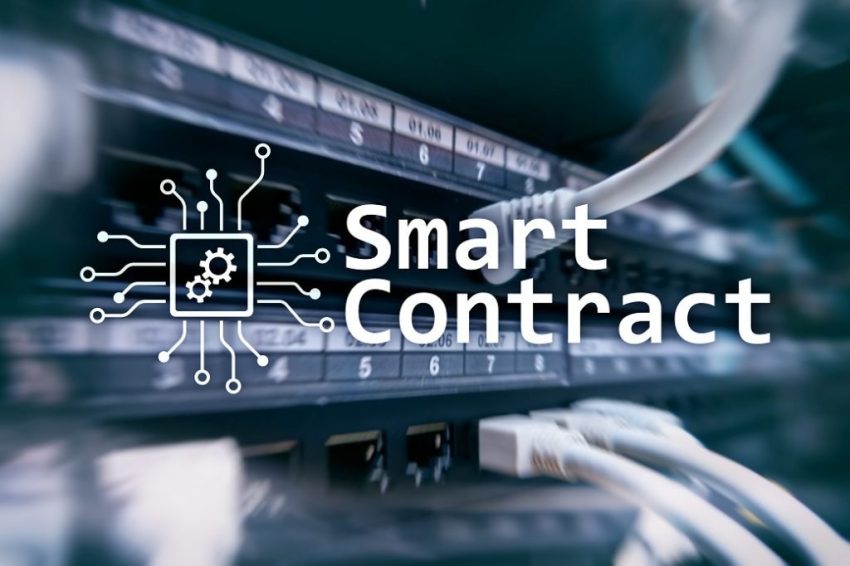The advancement of blockchain technology has paved the way for innovative solutions in various industries. One such application is the utilization of smart contracts in voting systems. In this article, we will explore the concept of smart contracts, delve into the benefits they offer, understand the fundamentals of blockchain technology, and examine how smart contracts can revolutionize the voting process.
What are Smart Contracts?
Smart contract are self-executing contracts with the terms of the agreement directly written into code. They are built on blockchain technology, which allows for the automation and enforcement of contractual agreements without the need for intermediaries.
Smart contract operate on a decentralized network of computers, where each transaction and agreement is recorded on a public ledger called the blockchain. The code within a smart contract contains the conditions and rules that govern the execution of the contract. Once these conditions are met, the contract automatically executes and enforces the agreed-upon terms.
The decentralized nature of smart contracts ensures transparency, as all participants can view and verify the code and transactions. Additionally, the immutability of blockchain ensures that once a smart contract is deployed, it cannot be altered or tampered with.
Benefits of Smart Contracts
- Efficiency and Automation: Smart contract automate processes by executing predefined rules and conditions. This automation eliminates the need for manual intervention, reducing the time and effort required to complete tasks. With smart contract, transactions and agreements can be executed quickly and efficiently.
- Transparency and Security: Smart contract utilize blockchain technology, which provides transparency and immutability. Each transaction and contract is recorded on the blockchain, creating a transparent and tamper-proof record. This transparency enhances trust among parties and minimizes the risk of fraud or manipulation.
- Cost Reduction: Traditional contracts often involve intermediaries, legal fees, and administrative costs. Smart contract eliminate the need for intermediaries as they are self-executing and self-enforcing. By removing intermediaries and streamlining processes, smart contract reduce costs associated with contract execution.
- Accuracy and Elimination of Errors: Smart contract operate based on predefined conditions and rules, ensuring accuracy and eliminating human errors. As smart contract are executed automatically, there is no room for misinterpretation or mistakes that can occur with manual contract execution.
- Speed and Timeliness: With smart contract, transactions and agreements can be executed in real-time. There is no need to wait for manual verification or approval, resulting in faster and more efficient processes. This speed is especially beneficial in time-sensitive transactions or situations where quick decision-making is required.
Understanding Blockchain Technology

Definition and Basics
Blockchain is a decentralized and distributed ledger that records transactions across multiple computers, ensuring transparency and security. Each transaction is bundled into a block, which is added to a chain of previous blocks, forming an immutable record of all the transactions.
How Blockchain Works
Blockchain employs a consensus mechanism, such as proof-of-work or proof-of-stake, to validate and verify transactions. Once a transaction is approved by the network, it is added to a block and linked to the previous block, creating a chain. This distributed ledger is maintained by multiple participants (nodes) across the network, preventing any single point of failure.
Decentralization and Security
Decentralization is a core principle of blockchain technology. Unlike centralized systems, where a single authority controls the network, blockchain operates through a network of nodes, ensuring no single entity has absolute control. This decentralized nature enhances security, making it extremely difficult for malicious actors to manipulate or compromise the data.
Integration of Smart Contracts and Blockchain
Smart contracts and blockchain technology are inherently linked, with smart contracts leveraging the underlying blockchain infrastructure to execute and enforce agreements.
How Smart Contracts Work on Blockchain
Smart contract are deployed on a blockchain network and executed automatically when predefined conditions are met. Once the conditions are fulfilled, the smart contract self-executes, facilitating the transfer of assets or execution of specific actions. The decentralized nature of blockchain ensures the integrity and reliability of smart contract execution.
Advantages of Smart Contracts on Blockchain
By utilizing blockchain technology, smart contract offer several advantages. Firstly, they provide an immutable and tamper-proof record of transactions, enhancing transparency and auditability. Secondly, the automation of contract execution eliminates the need for intermediaries, reducing costs and improving efficiency. Lastly, the decentralized nature of blockchain ensures the resilience and security of smart contract.
Smart Contracts in Voting Systems
Current Challenges in Voting Systems
Traditional voting systems often face challenges related to transparency, security, and trust. These systems rely on centralized authorities to conduct and validate elections, which can lead to concerns over integrity and fairness. Additionally, manual processes can be time-consuming and prone to errors.
How Smart Contracts can Improve Voting
Smart contracts can address the challenges faced by traditional voting systems. By implementing smart contracts on a blockchain network, the voting process can become more transparent, secure, and efficient. Every vote is recorded on the blockchain, ensuring transparency and eliminating the possibility of tampering. Additionally, the use of cryptography and decentralized consensus ensures the integrity of the voting process.
Ensuring Transparency and Security in Voting
Smart contracts enable voters to independently verify the accuracy and integrity of the voting process. Each vote is cryptographically secured and recorded on the blockchain, making it immutable and transparent. The use of public and private keys ensures that only eligible voters can cast their votes, while maintaining the privacy of individual votes.
Use Cases of Smart Contracts in Voting
Here are some notable use cases of smart contracts in voting:
- Online Voting: Smart contracts can enable secure and convenient online voting systems. By leveraging blockchain technology, voters can cast their votes from anywhere, eliminating geographical constraints. The transparency and security offered by smart contracts enhance trust in the online voting process, potentially increasing voter participation.
- Proxy Voting: Proxy voting, where an individual delegates their voting rights to another person, can also benefit from smart contracts. Smart contracts can automate and enforce proxy voting agreements, ensuring the integrity of the process. This can be particularly useful for absentee voting and corporate shareholder voting.
- Decentralized Autonomous Organizations (DAOs): Decentralized Autonomous Organizations (DAOs) are organizations governed by smart contracts. In a DAO, voting is used to make collective decisions, such as resource allocation or policy changes. By utilizing smart contracts, DAOs can achieve transparent and democratic decision-making processes.
- Secure and Tamper-Proof Voting Records: Smart contracts record every vote on the blockchain, creating a transparent and tamper-proof voting record. This ensures the integrity of the voting process and prevents any unauthorized alterations or manipulations of the vote counts.
- Improved Verification and Auditing: Smart contracts enable independent verification and auditing of voting processes. With every vote recorded on the blockchain, it becomes easier to verify the accuracy of the results and conduct audits for transparency and accountability purposes.
- Reduced Costs and Time Efficiency: By automating the voting process, smart contracts can significantly reduce costs associated with traditional voting systems. The elimination of manual processes and intermediaries streamlines the voting procedure, making it more efficient and cost-effective.
Potential Limitations and Concerns
While smart contract offer numerous benefits, there are also potential limitations and concerns that need to be addressed.
Regulatory and Legal Challenges
The legal framework surrounding smart contract and blockchain technology is still evolving. Regulatory challenges, such as the recognition and enforceability of smart contract, need to be addressed to ensure their widespread adoption.
Privacy and Confidentiality
Blockchain, by design, is transparent and accessible to all participants. However, certain voting scenarios may require privacy and confidentiality, such as secret ballots. Balancing the need for transparency with privacy concerns is a challenge that needs to be carefully addressed in smart contract-based voting systems.
Scalability and Adoption
Blockchain technology, in its current state, faces scalability challenges when it comes to processing a large number of transactions simultaneously. For smart contracts to be widely adopted in voting systems, scalability solutions need to be implemented to handle the high volume of votes during elections.
Conclusion
Smart contracts have the potential to revolutionize the voting process by enhancing transparency, security, and efficiency. By leveraging blockchain technology, smart contracts provide tamper-proof records, automate processes, and ensure the integrity of the voting system. However, challenges related to regulations, privacy, and scalability need to be overcome to realize the full potential of smart contracts in voting.
FAQs
Are smart contracts legally enforceable?
Yes, smart contracts can be legally enforceable. However, the legal recognition and enforceability of smart contracts vary across jurisdictions. It is essential to consult legal professionals and comply with applicable laws when utilizing smart contracts.
Can smart contracts eliminate voter fraud?
Smart contract can significantly reduce the risk of voter fraud by providing transparency and immutability. Each vote is recorded on the blockchain, making it nearly impossible to alter or manipulate the results without detection.
How do smart contract ensure the privacy of individual votes?
While blockchain is transparent, smart contract can implement cryptographic techniques to ensure the privacy of individual votes. By using public and private key cryptography, only eligible voters can cast their votes while keeping the contents of the vote confidential.
Can smart contract be used in offline voting systems?
Smart contract are primarily designed for online and decentralized voting systems. Offline voting systems may face challenges in utilizing smart contract due to the reliance on internet connectivity and real-time verification.
What is the role of blockchain in smart contract?
Blockchain provides the underlying infrastructure for smart contract. It ensures transparency, security, and decentralization by recording transactions and maintaining an immutable ledger. Smart contracts leverage the features of blockchain to automate and enforce agreements.
I have been writing about Bitcoin and other digital currencies for the past two years. I have a strong understanding of the technology behind these assets and how they work. I am also well-versed in the regulatory landscape surrounding them. I have published articles on a variety of topics related to cryptocurrencies, including their price movements, major announcements, and new developments in the space. I have also interviewed some of the leading figures in the industry.

